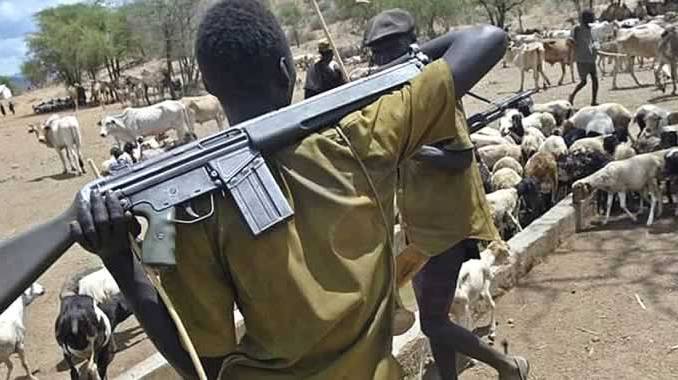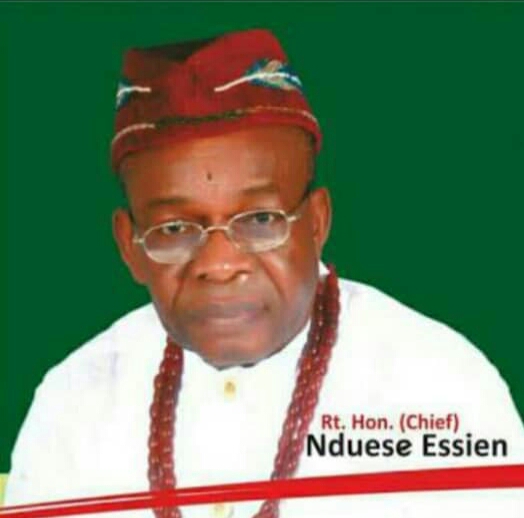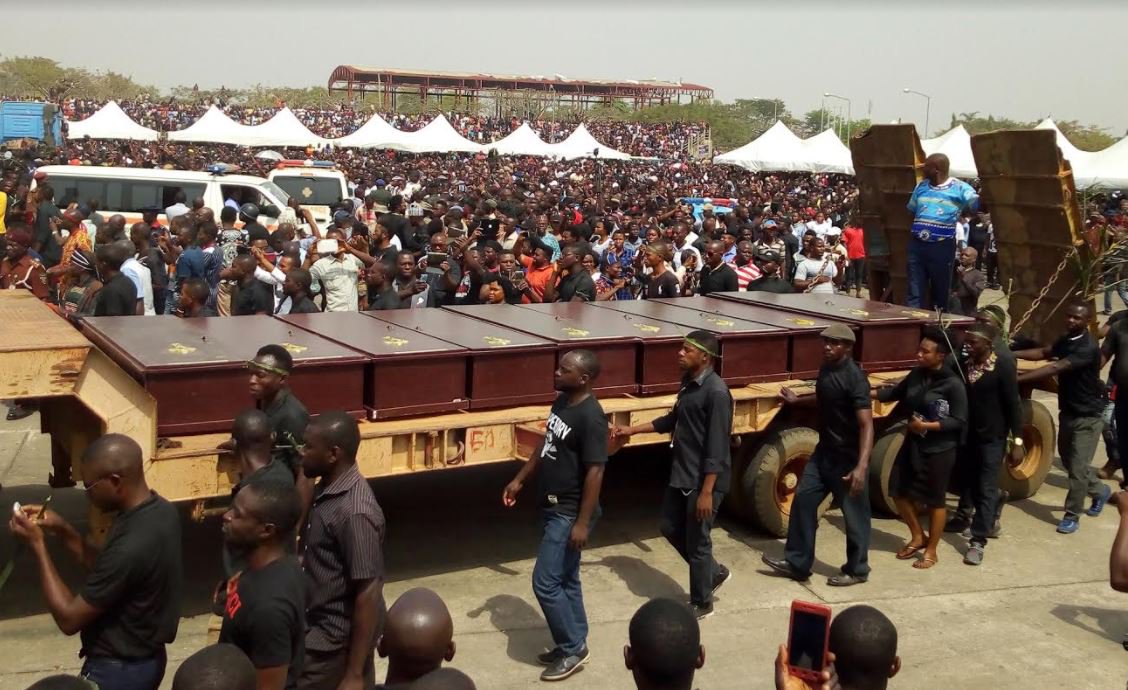Pressure to defend allegations of double standard and persecution compelled the Federal Government (FG) to approve special forces for the fight to stop sustained killings by herdsmen in Benue State. It was under pressure to convince the international community that citizens were not persecuted as alleged and under pressure to explain that military action was not taken in Benue State allegedly to protect the president’s kinsmen as was done in other sections of the country.
Security experts and the Chairman of the Northern Elders Forum (NEF) and former Minister of Steel Development, Chief Paul Unongo, condemned the FG for not treating the situation in Benue as a security emergency by drafting the military into the fight to stop blood-letting by herdsmen.
Ordering military action in other sections of the country but not against killings by herdsmen attracted allegation of double-standard by the FG.
Among other angry reactions, Unongo said that Benue people were capable of raising an army to defend themselves should the FG refuse to do so by failing to stop sustained killings in the state by Fulani herdsmen. Emotions exploded on Thursday, January 11, 2018, during the public holiday declared by the Benue State Government to mark the mass burial of 73 people killed by herdsmen in the state.
The NEF Chairman said that even in his advanced age, he was proud and ready to lead such an army. He said that after sacrificing so much for the unity of the country, the Benue people did not deserve the persecution they got from the government of President Muhammadu Buhari.
The threat of an army to defend the people justified the petition by the Benue State Government to the United Nations alleging persecution.
The approval for special forces to stop killings by herdsmen compensated for the allegations. The feeble response by government to the sustained killings by herdsmen provoked anger and forced confidence in traditional institutions of authority to dwindle.
The Socio-Economic and Accountability Project (SERAP) and the Benue State Government consequently petitioned the international community. The first petition from the country inspired the ground-breaking UN Report on Environmental Pollution in Ogoniland by Shell. Unfortunately, the report was allegedly ambushed by similar intrigues that forced the original petition.
The current petition urged the general assembly to rescue Benue people from killings by herdsmen while relevant authorities look the other way. The petition urged the UN to condemn the FG for failing to discharge its basic responsibility of protecting lives and property of citizens.
The global human rights watchdog, Amnesty International, also expressed concern over killings by herdsmen and urged President Buhari to take urgent steps to stop the blood-letting. It specifically noted that in January 2018 alone, over 70 people were killed in Benue State in North-Central Nigeria.
The distress call from SERAP to the UN High Commissioner for Human Rights, Prince Zeid Ra’ad Al Hussein, was signed by Executive Director, Mr. Adetokunbo Mumuni. It urged the High Commissioner to use his position to “urgently call and/or facilitate the holding of a special session of the UN Human Rights Council to address persistent killings by herdsmen in Benue State of Nigeria and other parts of the country.”
SERAP further urged Hussein to “speak out strongly and condemn the killings by herdsmen in the country, and make an official visit to Nigeria with special rapporteurs with relevant mandates to discuss the killings and concrete actions to end the killings and ultimately bring about significant improvements in the lives of farmers and their families as well as other citizens affected by violence across the country.”
Among killing fields linked with the determination of herdsmen to carry out livestock farming the primitive way it was done centuries ago, Benue State is unique. Over 50 people were killed in a raid on New Year Day’s eve. Before the dust on the familiar blood-letting settled, another 10 were slaughtered in Tembu village in Logos local government area by herdsmen who carried sophisticated weapons like terrorists.
“SERAP strongly believes that a special session on the violence and killings by herdsmen in Benue State and elsewhere in Nigeria would contribute to a speedy end to the problem, and to peace and greater respect for human rights of farmers and their families as well as other citizens. It is time for your office to speak out strongly against the continuing killings…for the sake of thousands of victims and their families who continue to lack access to an effective remedy, including truth, justice and full and effective reparation,” the group further said.
Nobel laureate, Professor Wole Soyinka, also condemned killings by herdsmen in the country and the feeble response by the FG. Soyinka said the Independent Peoples of Biafra (IPOB) did not commit half of the crimes committed by herdsmen before it was hurriedly banned, allegedly for terrorism.
The killing of security agents sent to enforce peace in Benue State dramatized the danger that mocked concerns by President Buhari. The President described perpetrators of the New Year Day massacre as criminals, the Vice President, Prof. Osinbajo advised against politicizing the killings, which were politicized, on arrival, by double-standard in response by authorities.
Read also: Benue killing: I am sorry, Lalong begs Ortom
The allegation by Governor Samuel Ortom that security agencies abandoned Benue people indicted the government. And highlighted his helplessness to enforce the Anti-Open Grazing Law that the state government recently passed. Law-enforcement agencies controlled by the FG allegedly denied necessary support.
The denial ridiculed the governor and fired up critics of the unitary federalism operated in the country. Without the capacity to enforce relevant laws, state governors were powerless to perform. The failure to protect citizens gave new meaning to Kano State Governor Abubakar Ganduje’s allegation that herdsmen committing crimes were foreigners who invaded the country with their cattle.
Before the governor’s revelation, the Sultan of Sokoto, Alhaji Abubakar Sa’ad 111, described them as fugitives fleeing from political instability in the sub-region. The Emir of Ilorin, Alhaji Sule Gambari also identified with the position and described them as fugitives and criminals posing as herdsmen.
The alleged reluctance to prosecute criminals so identified inevitably fired allegations of double standard and secret agenda. A security expert and retired colonel, Mr Tony Nyiam, said President Buhari demonstrated this by sending the police to Benue to fight herdsmen who are armed with sophisticated weapons, instead of soldiers who crushed the IPOB in the South-East.
The killing of two mobile policemen in Benue by herdsmen underscored Nyiam’s allegation of double standard, adding that policy and operational failures escalated the situation. “What justified sending soldiers to Port Harcourt to kill a cultist but did not justify sending the police to Benue to fight herdsmen who are better armed with sophisticated weapons. This is double-standard,” he told Channels Television.
The allegation of double-standard was legitimate. Folks wondered why Police investigation into the killing of a monarch in Delta state by herdsmen remained open-ended. And why ordinary herdsmen should bear sophisticated arms in breach of the law and rape and murder women in farms at will, yet government ignored them.
The plea by security experts to the FG to encourage Gov. Ortom to work towards restoring the confidence of Benue people in the capacity of the FG to offer protection therefore came timely. That is why the FG should be commended for accepting that not involving soldiers from the onset was a strategic blunder.
The security architecture was fortified to provide effective coverage. And Governor Ortom was hugely empowered to re-invent confidence in the capacity of government to protect citizens. The involvement of the military was the original recommendation Nigerians expected because the fight was bigger than the police.
The situation in Benue was huge enough to stagger the IGP, forcing him to confuse the calculated killings by herdsmen with communal feud. The error angered Benue people who demanded instant apology at a stakeholders meeting in Makurdi. And the top cop rendered the apology without reservation.
Experts resolved that involving soldiers in the fight to stop the killings by herdsmen was the missing piece in the security puzzle. Though belated, the move, was applauded by experts and stakeholders who alleged failures in the security architecture.
The situation in Benue undoubtedly overwhelmed the Force. That explained amusement after the president directed the IGP to relocate to Benue to co-ordinate the fight. Mr. Aliyu Umar, a retired army captain, told Channels Television that the directive amounted to setting the Force up for humiliation.
He advised against wrong security options to resolve recurring conflicts in the region in order not to inadvertently sabotage the war against insurgency. According to him, troops from Benue State who are involved in the fight against Boko Haram insurgents in Borno risked getting demoralized by reports that the FG could not protect their kinsmen back home.
Though the group denied complicity in the killings, Governor Ortom renewed his call for arrest of the leadership of the Miyetti Allah Kautal Hore for threatening to resist the anti-open grazing law. He appealed to the FG to support the implementation of the law “because it is intended to foster peaceful coexistence between the local farmers and herders.”
The Secretay-General of Miyetti Allah Kautal Hore, Alhaji Baba Usman Ngelzarman affirmed the group’s denial of complicity in the killings and stressed that killings were not peculiar to Benue. He argued that the issue went beyond politics and religion because similar killings by criminals posing as herdsmen occurred in Zamfara, Katsina, Taraba and other states. He re-affirmed that the group pleaded for time from the Benue State Government to enable unskilled herdsmen adjust to the new way of practising their trade.
Federal lawmakers representing the state in the National Assembly also demanded the arrest of the leadership of the Miyetti Allah Kautal Hore, for alleged complicity in the killings. Led by Senator George Akume, the lawmakers said in a statement in Makurdi, that the group threatened to invade the state if the grazing law was not reversed. Appealing to the FG to proscribe the Miyetti Allah Kautal Hore as a terrorist group, the legislators urged the FG to set up a Judicial Commission of Inquiry into persistent conflicts between farmers and herdsmen.
The Country Director of Citizens United for the Rehabilitation of Errants, CURE-Nigeria, Mr. Sylvester Uhaa, also alleged that the failure of the FG to arrest and prosecute masterminds of recurrent Benue killings encouraged the unending bloodbath. Speaking in Makurdi, Uhaa lamented the inability of the FG to protect the lives and properties of Nigerians, describing it as the biggest failure of the government.
Interior Affairs Minister, General Dambazzau disclosed that Buhari directed him to visit Benue to commiserate with the people and assess the situation in order to take prompt action to end the crisis. But his promise became tasteless after rampaging herdsmen ambushed and killed two mobile policemen sent to enforce order in the state.
“The President is concerned about the issue and is determined to ensure a lasting solution to the problem. The Federal Government understands the pains and feelings of the people of Benue State and will not sit and watch this continue,” he said..
“This issue dates back to 2012 and those behind it are criminals. They have been doing it in parts of the country and the Federal Government is determined to ensure that they are apprehended and made to face justice. Be assured that the Federal and Benue State governments will collaborate to deal with the problem. The crisis has nothing to do with ethnicity or religion but criminality, so whoever is involved must be made to face the music,” the minister promised
The killing of the policemen highlighted Umar’s allegation that the president intended to punish the police. Hopefully, approval for special forces signalled determination by government to stop the killings by herdsmen who armed with sophisticated weapons.
Governor Ortom’s claim that the militia responsible for the killings was camped in Awe, in neighbouring Nasarawa generated controversy but it deserves investigation for its security potential. His Nasarawa State counterpart, Alhaji Tanko Al-Makura, denied the allegation but it is neither uncommon nor strange for terrorists to seek camouflage in the security of a large and unsuspecting civilian population.
Gov. Makura insisted that the alleged militia camp in his state was a refugee camp for displaced people from Benue State. The back and forth by the governors set the tone for what the special forces should expect as they get set to dislodge herdsman from the killing field that they unilaterally proclaimed Despair and loss of confidence overtook citizens in
The outcry over sustained killings in Benue; indictment by Amnesty International and killing of security agents by herdsmen forced the FG to take concrete steps to discourage legitimate concerns that it deliberately shielded criminals from military action that was applied in previous security situations.
The involvement of the military in the fight will hopefully bring closure for the era of indiscriminate killings by herdsmen. And restore the credibility of government. Pressure will also be lifted from President Buhari to explain that he never shielded his kinsmen from actions that were applied to other Nigerians.











